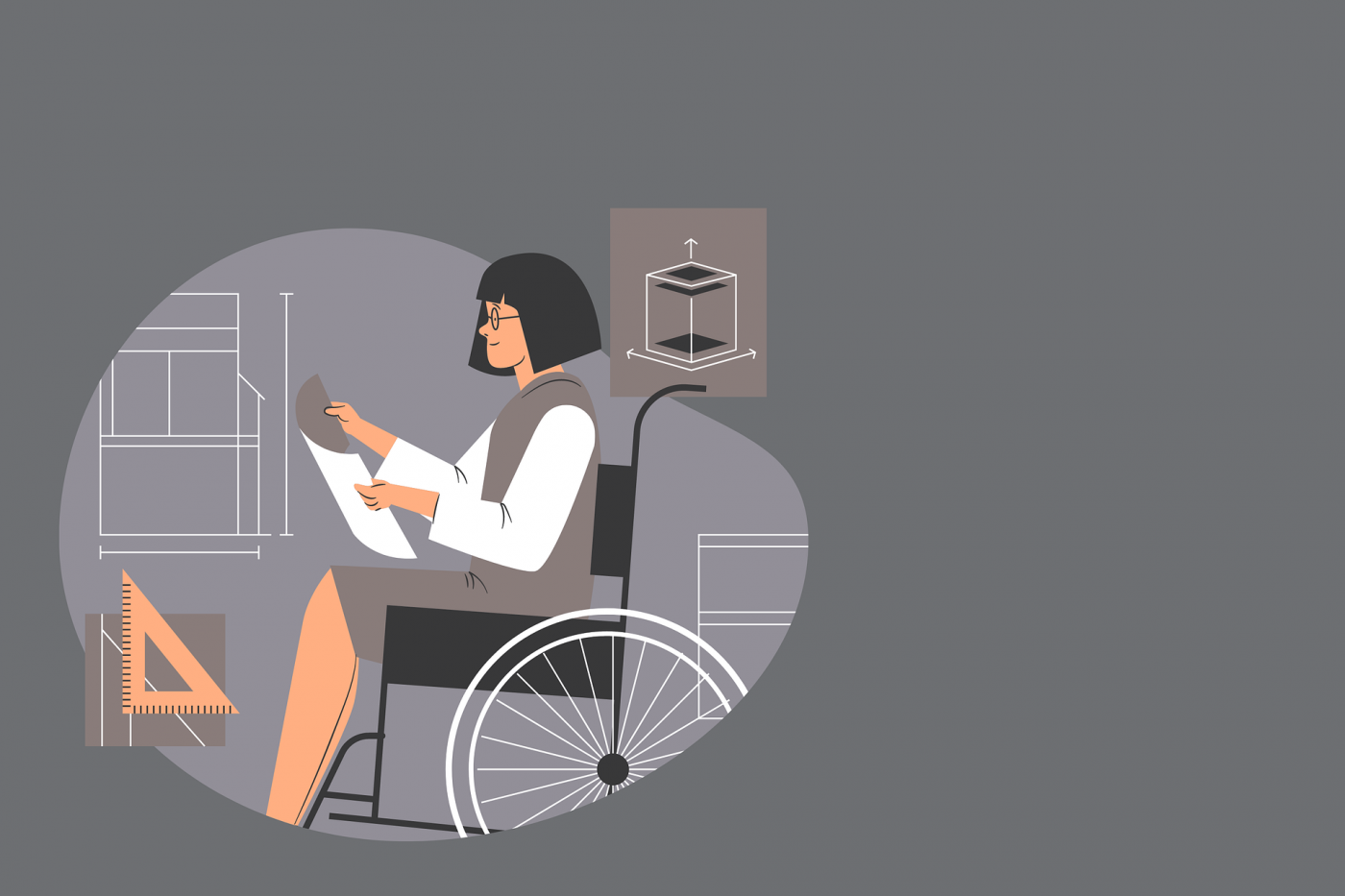New platform aims to combat ‘ableism’ in academia

It was not for nothing that Accessible Academia, a new platform for researchers, students and staff with a disability went online last Friday. December 3 is the International Day of People with Disabilities. The new platform was born with a mission: combat ableism in Dutch academia.
Ableism is the name given to discrimination or bias against people with disabilities. There are plenty of examples of ableism in the academic world, states Pollaert. “You have to hold your own in a world that is literally not built for you.” To name but one instance, universities have lecture halls that are supposedly ‘accessible’ to people in a wheelchair, but that only applies to the, not the teacher, who cannot get on the podium.
Princess and the pea
Pollaert has a disorder that causes chronic pain and fatigue. Her disability isn't always visible, which makes it hard for her to explain to people that she needs certain amenities. “For example, the company doctor advised me to get a better office chair, but my manager felt I was the princess with the pea.”
Because of her disability, Pollaert has to lie down from time to time, but that same manager did not think it was necessary to provide her with a place to do that. She could lie on the office floor, couldn't she? “The printer was in that office, so my colleagues literally had to step over me to get their printouts", she recollects. "You feel very small when the soles of your colleagues’ shoes are virtually brushing your face.”
She felt as though she was getting in people's way, something that is not uncommon among people with disabilities. “You feel ashamed. When you have to ask for something for the third time, you feel like a moaner. It’s as if you were asking for a favour.” Except that a good place to study and work is a right, not a favour. The Netherlands signed the UN Convention on the Rights of Persons with Disabilities in 2016.
The circumstances are often a bigger handicap than the disorder itself. “If the building doesn't have a lift and someone has to go upstairs in a wheelchair, it’s the stairs that are the handicap.” That is why Accessible Academia is going to fight for better provisions and better policy.
Race to the bottom
According to Pollaert, these changes are not only good for people with disabilities. “The scientific world is set up to work sixty or seventy hours a week. Even researchers without a disability drop out with fatigue. It’s a race to the bottom. It would be better for everyone if that were to change, but we are the canaries in the coal mine: if the working conditions are poor, we are aware of that before the others.”
The platform wants more attention to be paid to experiential research and disability studies, the scientific discipline that studies disability as a social phenomenon.
The Netherlands has an Expert Centre on Inclusive Education (previously Expert Centre on Studying with Disabilities), which in her view des a good job. But a platform against ableism, made for and by people with disabilities, did not exist yet.
Energy
Why did it take so long for such an initiative to appear? Pollaert believes that one of the reasons may be the fact that many disabled students and staff have little energy left after having to navigate around inaccessible study and work environments. In fact, that's something she noticed upon setting up Accessible Academia: the core team currently comprises four people, as others had to withdraw for health reasons.
Pollaert stresses that many disabilities are not visible. People often do not disclose that their energy level is lower than most people's or that they are taking medication. They keep their disorder a secret for fear that others will hold it against them.
Accessible Academia wants to put students and staff of higher education institutions in contact with one another, and protect their interests. There are going to be networking meetings and a reading club. The first lecture and workshop about ableism in the academic world is already scheduled.